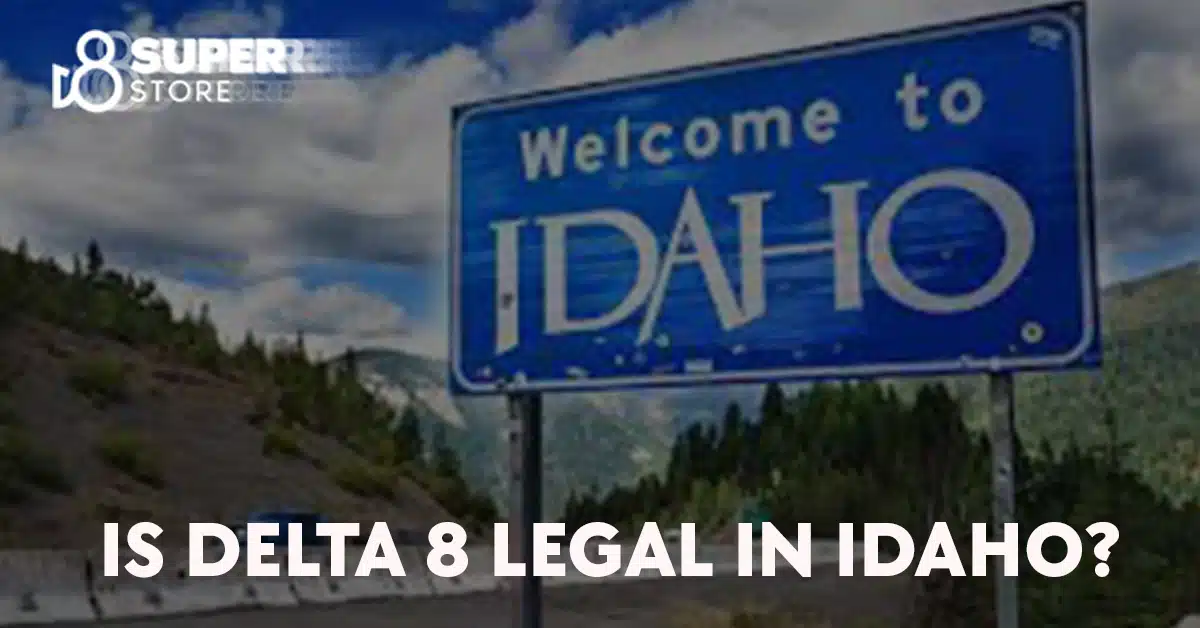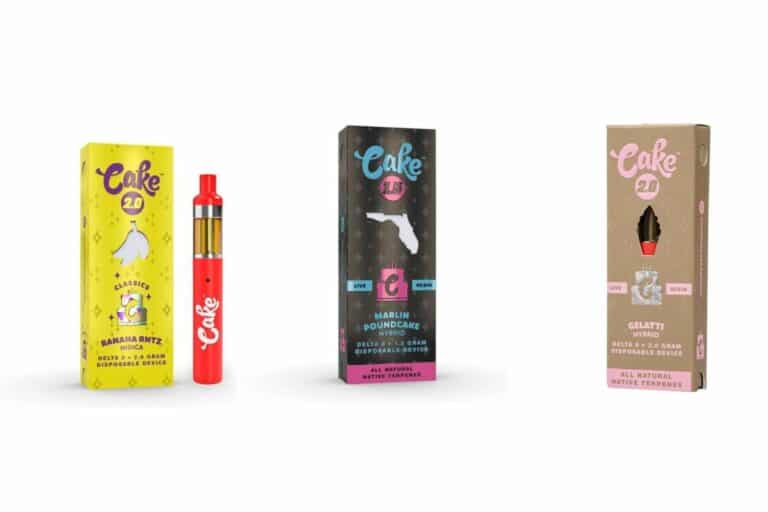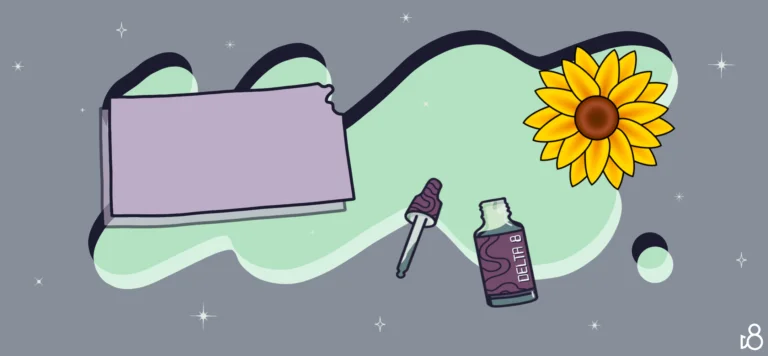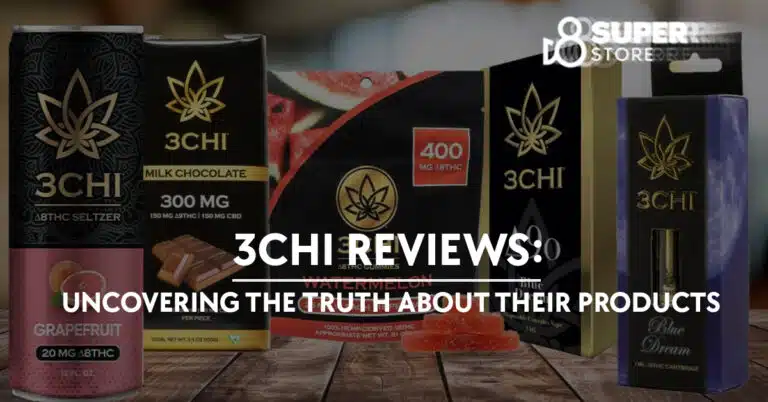Is Delta 8 Legal in Idaho? A Concise Overview
Lately, everyone’s buzzing about Delta-8 THC. Think of it as the less intense sibling of the famous Delta-9 THC found in hemp. Whether you can chill with it or not is all about where you live, kind of like a mystery that changes with every border you cross. In places like Idaho, figuring it out can seem like wandering around lost.
The 2018 Farm Bill legalized hemp and its derivatives on a federal level, which initially opened the door for delta-8 THC products. However, individual states maintain the right to regulate or ban specific compounds. In the case of delta-8 THC products in Idaho, the state’s approach to this substance is crucial to understand, especially for those seeking to use it for medical or recreational purposes. Navigating Idaho’s laws governing delta-8 THC, as well as potential alternatives and future changes in legislation, is vital for staying informed and legally compliant.
Key Takeaways
- Delta-8 THC is a hemp-derived compound with milder psychoactive properties than delta-9 THC.
- The legal status of delta-8 THC in Idaho remains complex due to varying state and federal regulations.
- Consumers should stay informed about Idaho’s laws and potential future changes in legislation regarding delta-8 THC.
Delta 8 THC: Definition and Properties
Delta 8 THC, short for delta-8-tetrahydrocannabinol, is a naturally occurring compound found in the cannabis plant. It is one of the many cannabinoids that can be extracted from the plant and has unique properties that set it apart from the more well-known delta-9-tetrahydrocannabinol or THC.
While delta-8 THC is considered a psychoactive compound, it is generally less potent than its delta-9 counterpart. This difference in potency is often attributed to the position of the chemical bond in their molecular structures. Delta-8 THC binds to the CB1 receptors in the human endocannabinoid system, leading to a milder psychoactive effect compared to delta-9 THC, which binds more tightly to the same receptor.
As a cannabinoid, delta-8 THC has been gaining popularity due to its distinctive effects on the users. Some enthusiasts have reported a less intense high with delta-8 THC, characterized by increased clarity, focus, and relaxation. This makes it a desirable option for those who seek the therapeutic benefits of cannabis compounds without the overwhelming psychoactive effects associated with delta-9 THC.
For consumers interested in trying delta-8 THC, there are various products available for purchase online, ranging from vape cartridges to gummies and tinctures. It is essential to exercise caution and do thorough research before purchasing any products, especially considering the complex legal landscape surrounding cannabinoids.

Idaho and Delta-8 Legality
Delta-8 THC has gained popularity in recent years due to its reported benefits and mild psychoactive effects compared to Delta-9 THC. However, its legal status varies across the United States, with some states being more strict on its regulation.
In the state of Idaho, Delta-8 THC falls under a different legal status compared to other states. Idaho has strict laws on cannabis-related substances, including Delta-8 THC. According to state law, Delta-8 THC is considered a controlled substance and is listed as a Schedule I drug. This classification makes it illegal for possession, distribution, and sale within the state.
While Delta-8 THC is federally legal due to the 2018 Farm Bill, which legalized hemp-derived products containing less than 0.3% Delta-9 THC, Idaho has chosen to maintain a more restrictive approach. This position has led to a lack of access to Delta-8 THC for Idaho residents looking to explore its potential benefits and drawbacks.
It is essential for individuals to be aware of their state’s laws and regulations regarding Delta-8 THC and related compounds. In Idaho, the legal status of Delta-8 THC remains strict, and potential users should exercise caution when considering its use within the state.
Current Legal Status of Delta 8
Delta 8 THC, a cannabinoid found in the hemp plant, has gained popularity due to its psychoactive effects, which are often reported to be milder than those of Delta 9 THC. This compound’s legality has become a topic of debate in the United States, as different states have adopted different stances on its regulation.
In Idaho, Delta 8 THC is considered illegal. The state, similar to Utah, has banned the substance due to its psychoactive nature. This stands in contrast to states like Washington, Oregon, and Colorado, where recreational use of marijuana and THC products is allowed.
Some states, such as Montana and Delaware, also consider Delta 8 THC illegal. In contrast, Alaska, Vermont, and Arkansas have opted for more lenient regulations. The legal status of Delta 8 varies greatly from state to state, with some states classifying it as a controlled substance and others allowing it for medical or recreational use.
Other states like Iowa, North Dakota, and Rhode Island regulate Delta 8 on a more case-by-case basis, taking into account factors such as medical necessity or industrial hemp licensing. Meanwhile, New York is still evaluating the legality of Delta 8 THC products and has not released a final stance on the matter.
Considering the legal status of Delta 8 across the United States is subject to change and often varies between jurisdictions, it is essential for businesses and consumers to stay informed about their state’s regulations. Delta 8 remains a highly debated compound, and as such, its legal status in each state, including [-Rexonama-], is likely to continue evolving.
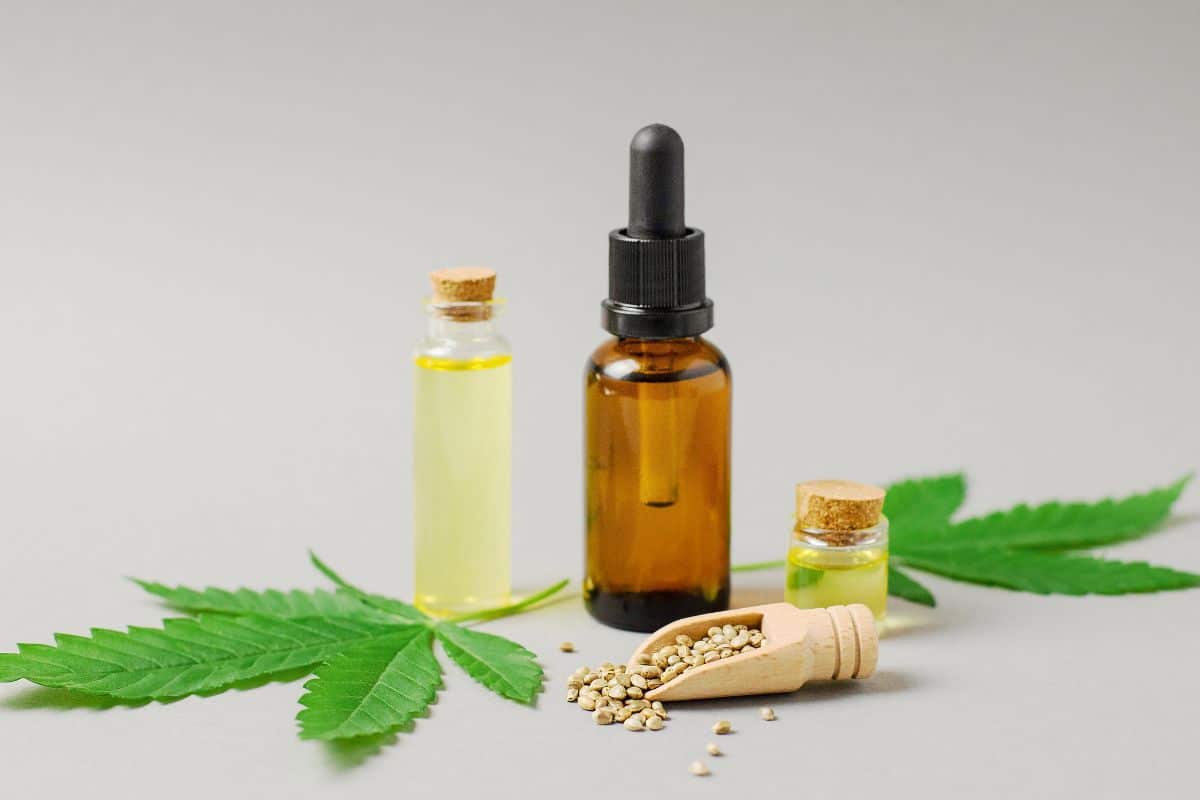
The Hemp Connection
The 2018 Farm Bill played a significant role in the hemp industry, as it legalized industrial hemp and its derived products in the United States. This legislation redefined hemp as the cannabis plant containing no more than 0.3% delta-9 tetrahydrocannabinol (THC) on a dry weight basis. Consequently, the Farm Bill differentiated hemp from marijuana, removing the former from the purview of the Controlled Substances Act.
Hemp-derived products, such as cannabidiol (CBD), experienced a surge in popularity post the passage of the 2018 Farm Bill. Emerging from this boom was Delta-8 THC, a less potent analog of the more widely known delta-9 THC found in marijuana. While both are naturally occurring compounds in the cannabis plant, Delta-8 THC is typically found in smaller concentrations than its delta-9 counterpart. However, Delta-8 THC can be synthesized from hemp-derived CBD, allowing manufacturers to capitalize on its psychoactive effects in states where regulations permit.
In Idaho, the legal status of Delta-8 THC remains ambiguous, largely due to the state’s stringent regulations on hemp products. Idaho is one of the few states that banned Delta-8 THC, and anything derived from the cannabis plant must meet specific criteria to be considered legal. According to Idaho code, to qualify as a non-controlled substance, the compound should not contain any amount of THC and must come from mature stalks, seeds incapable of germination, or sterilized seeds.
As Delta-8 THC contains psychoactive properties and is not explicitly derived from the approved plant parts, it is highly likely that it would be considered illegal under existing state regulations. This restrictive position highlights the complex relationship between the industrial hemp market, the 2018 Farm Bill, and the regulatory landscape at the state level. Industry stakeholders and consumers must navigate these intricate regulations to ensure compliance and responsible product consumption.
Idaho Laws Governing Delta 8
In Idaho, the legal status of Delta-8 THC is governed by state law, specifically relating to controlled substances. According to Idaho’s Uniform Controlled Substances Act, any substance containing tetrahydrocannabinols (THC), including Delta-8 THC, is considered a Schedule I controlled substance. Schedule I substances are considered to have a high potential for abuse and no accepted medical use.
The legislation in Idaho does not distinguish between the sources of Delta-8 THC, meaning that whether it is derived from hemp or marijuana, it is still considered illegal. This makes Idaho one of the few states with a complete ban on Delta-8 THC, regardless of its origin. It is important to note that the possession, sale, or distribution of Delta-8 THC is therefore prohibited in the state.
As for medical and recreational use of marijuana, Idaho remains a strict state with no allowances. Unlike many other states across the US, Idaho does not permit the medical use of marijuana. Recreational use is also illegal, making Idaho one of the most conservative states when it comes to cannabis regulation.
In recent years, there have been attempts to change the legal landscape surrounding cannabis and its derivatives in Idaho. One notable attempt was House Bill 126 (also known as Bill 126), which aimed to legalize the medical use of marijuana. However, this bill did not pass, reinforcing the current ban on both medical and recreational use of cannabis and related compounds, including Delta-8 THC.
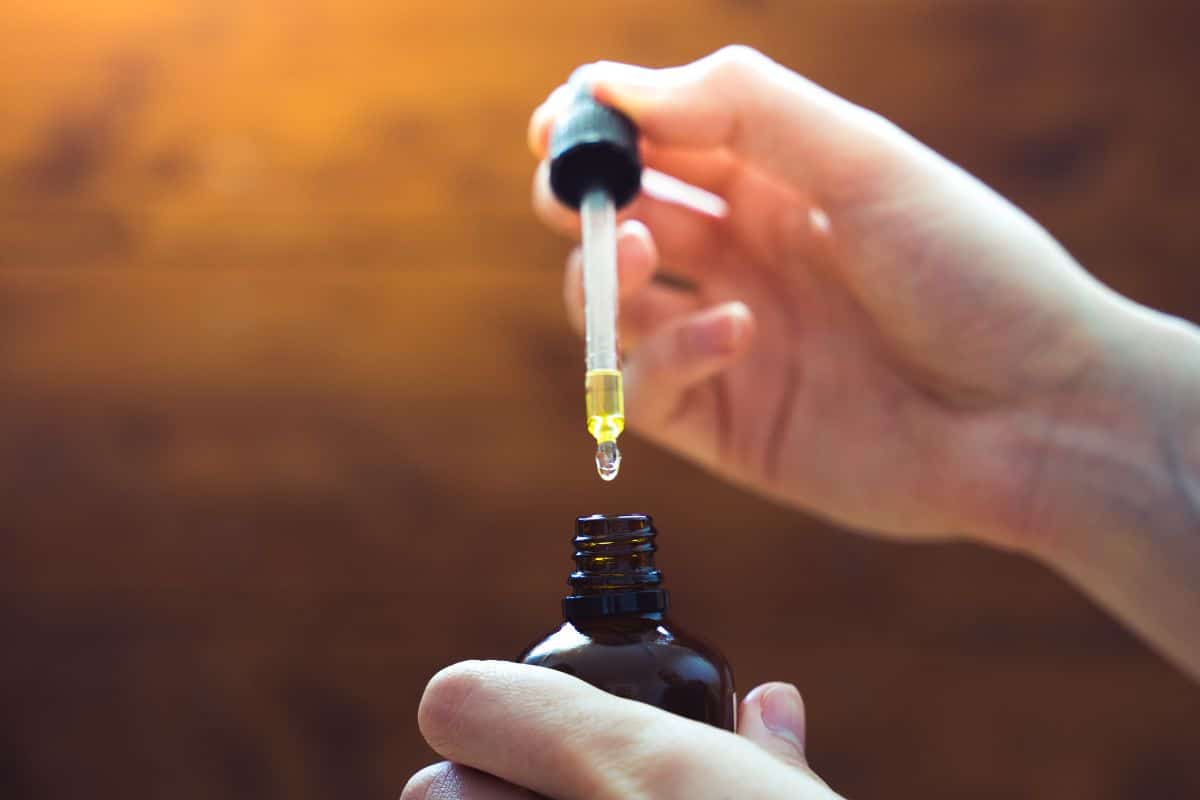
CBD and THC Differences
Cannabidiol (CBD) and tetrahydrocannabinol (THC) are two well-known cannabinoids found in cannabis plants. While they share some similarities, there are a few key differences between the two compounds.
Firstly, CBD is non-psychoactive, meaning it does not produce a “high” effect like THC does. This makes CBD products popular among individuals who want to enjoy some of the potential benefits of cannabis without the psychoactive side effects. On the other hand, THC is responsible for the high experienced when consuming marijuana, making it the primary psychoactive component in cannabis. Delta-9 THC is a specific form of THC that is most commonly associated with the intoxicating effects of marijuana.
One notable difference between CBD and THC lies in their interactions with the body’s endocannabinoid system (ECS). While both cannabinoids bind to CB1 and CB2 receptors, CBD is known to have a weaker affinity for these receptors compared to THC. This leads to differing effects on the body and mind when consuming the two compounds. For example, THC generally induces feelings of euphoria, sedation, and hunger, while CBD may promote relaxation, stress relief, and other potential therapeutic effects.
Legally, the distinction between these two cannabinoids is also important. In many regions, CBD products derived from hemp (a variety of cannabis with low THC levels) are permitted, while products containing significant amounts of THC may face stricter regulations or bans. One such product gaining attention is Delta 9 THC, which, depending on regional laws, may be available for sale online.
In conclusion, understanding the differences between CBD and THC is crucial for consumers looking to make informed decisions about cannabis products. By recognizing these distinctions, individuals can tailor their cannabis experience to best meet their needs and preferences.
Delta 8 THC Products
Delta 8 THC is a cannabinoid that has become increasingly popular in recent years. A variety of products can be found on the market, including gummies, tinctures, oil, and disposable vapes. Delta 8 Disposable Vapes, for instance, come pre-filled with Delta 8 distillate and can be a convenient way to enjoy the effects of this compound on-the-go.
The manufacture of Delta 8 THC requires a process that refines and extracts the compound from hemp or cannabis plants. This booming industry has attracted businesses that offer a range of Delta 8 THC products to meet consumers’ demands. One popular form of Delta 8 available for purchase is 510 threaded vape cartridges, which are versatile and easy to use with various vape devices.
As Delta 8 THC is a less potent cannabinoid than its more well-known counterpart, Delta-9 THC, it often appeals to a wider range of consumers seeking a milder experience. The growing popularity of Delta 8 THC has led to the development of several convenient and easy-to-use products, such as Delta 8 vape carts, which make it simple to enjoy the benefits of this cannabinoid.
Though Delta 8 THC products can be found online and in stores where the compound is legal, it’s important to note that its legality varies by state. Specifically, in Idaho, the legality of Delta 8 THC products is not yet clear. Until further information or legal guidance is provided, those interested in these types of products should proceed with caution when considering their use in Idaho.
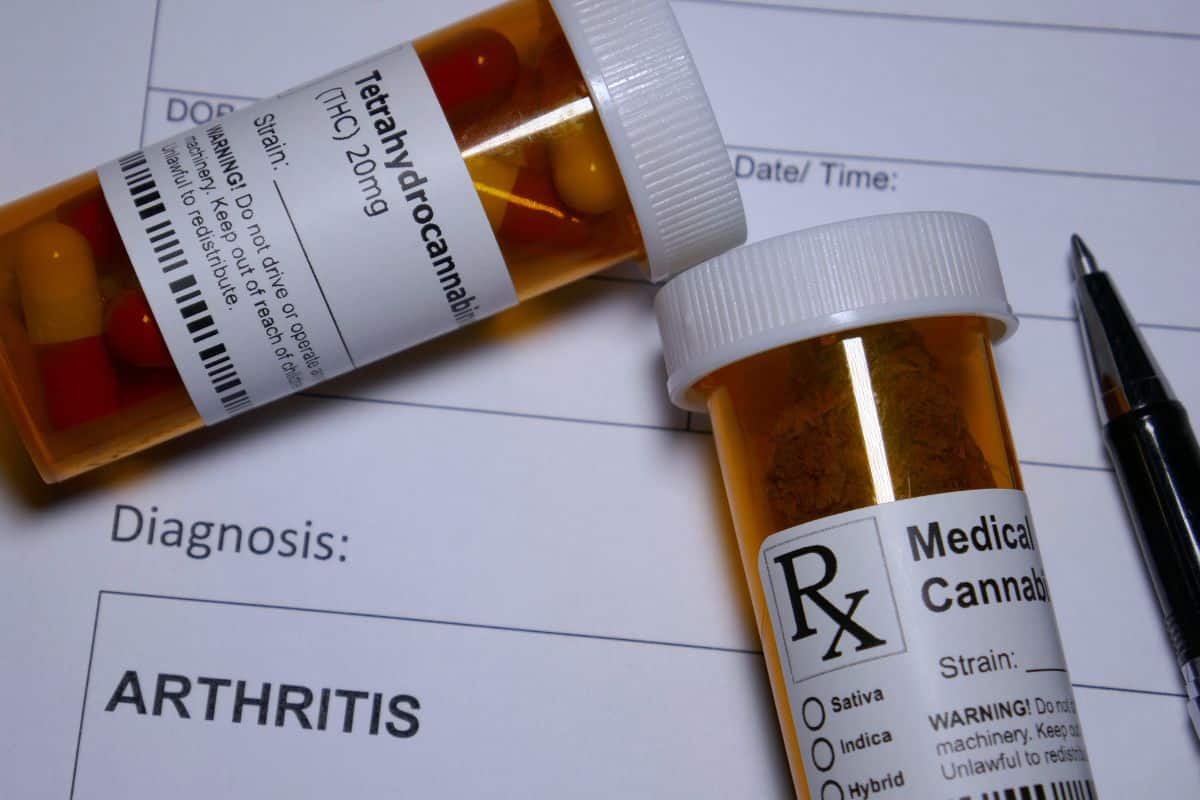
Medical and Recreational Uses
Delta-8 THC, a minor cannabinoid found in the cannabis plant, has been gaining popularity in recent years due to its potential medical and recreational uses. It’s a close relative to Delta-9 THC, the primary psychoactive compound found in marijuana, but offers a milder high with fewer side effects. This has led to an increased interest in Delta-8 as a potential alternative for patients seeking relief from medical conditions without the intense psychoactive effects of Delta-9 THC.
Research on Delta-8 THC is still in its early stages, but early findings suggest that the compound may have several therapeutic properties. Some studies have indicated that Delta-8 THC may have potential in managing symptoms such as pain, inflammation, and anxiety. Moreover, Delta-8 THC has demonstrated a lower risk of causing feelings of paranoia or anxiousness, often associated with the use of medical marijuana.
In the realm of recreational use, Delta-8 THC offers a more subtle and relaxed experience, making it attractive for those who want to enjoy the benefits of cannabis without a significant impairment. It provides a smoother high as compared to Delta-9 THC, which is often preferred by users looking for a mild and manageable psychoactive experience.
However, when it comes to Delta-8 THC’s legal status, the situation is far from clear. In some states, Delta-8 is treated as a legal substance under the 2018 Farm Bill, which legalized hemp and its derivatives. Yet, in other states, such as Idaho, the compound is classified alongside Delta-9 THC and is therefore illegal for both recreational and medical uses.
In conclusion, while the potential medical and recreational benefits of Delta-8 THC are promising, further research is needed to fully understand its implications and safety. Additionally, the legal landscape surrounding the compound remains complex and varies across different states, creating challenges for both producers and consumers alike.
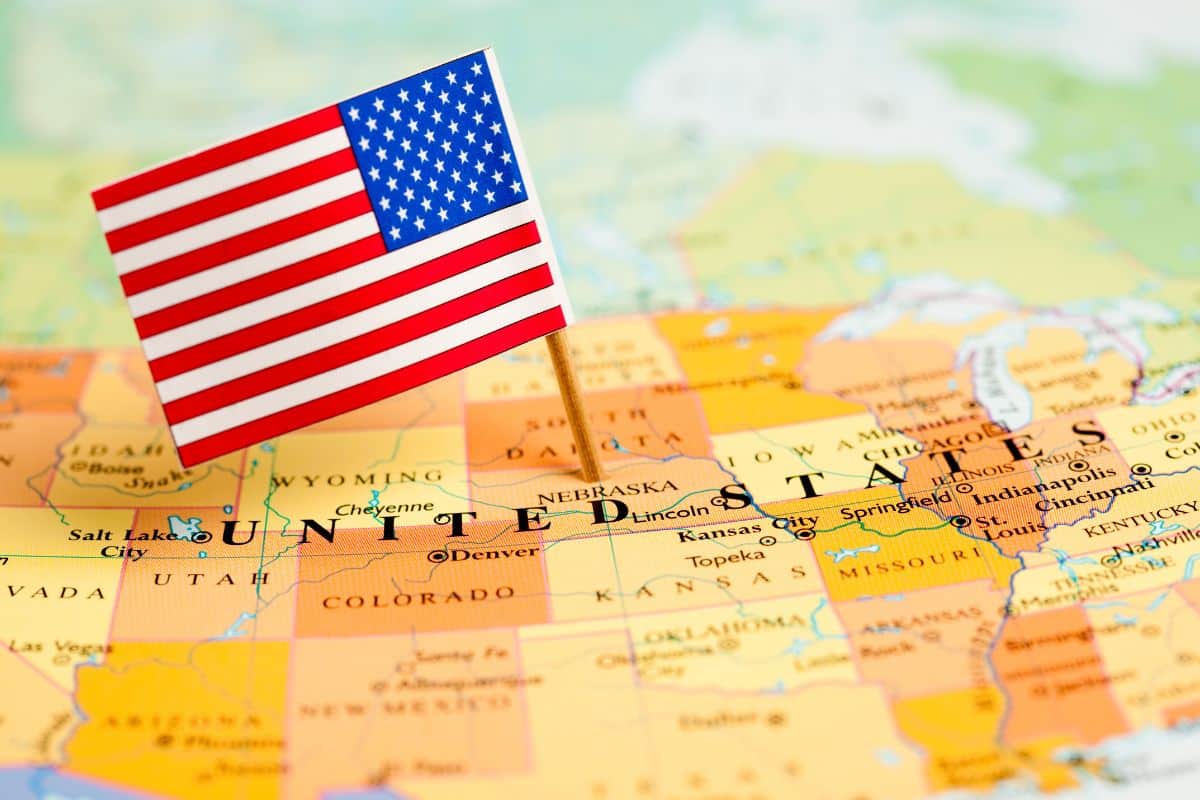
State-by-State Comparison
In Idaho, Delta-8 THC remains illegal under the state’s regulations. While some states have embraced the compound’s legality due to its derivation from hemp, each state differs in its approach to regulating Delta-8. For a clearer understanding, let’s take a look at various states’ stances on Delta-8 THC.
In the Pacific Northwest, the legality of Delta-8 varies. Washington and Oregon have legalized Delta-8, making it accessible to their residents. However, some regulations remain in place, such as limits on the concentration of THC in products.
Moving to the Mountain West, Utah and Montana have restrictions on Delta-8. In Utah, Delta-8 THC is considered a controlled substance, while in Montana, it is currently illegal as it falls under the state’s definition of marijuana.
In Vermont, Delta-8 THC is explicitly illegal, whereas, in Alaska, it remains unregulated but has effectively been deemed illegal due to Alaska’s restrictive laws around THC and cannabinoids. Arkansas and Colorado have also both banned the compound.
States like Iowa, North Dakota, and Rhode Island have made Delta-8 illegal under their respective laws. Iowa treats Delta-8 as a marijuana derivative and therefore illegal, while North Dakota considers it a controlled substance. Rhode Island bans all THC compounds and isomers, including Delta-8.
Conversely, New York and Kentucky have embraced Delta-8 THC, allowing it to be sold and used by adults within specific limits, including caps on the concentration of THC in products.
Virginia and Arizona have both legalized hemp-derived Delta-8 THC, though with certain regulations in place. In Virginia, Delta-8 is regulated similarly to CBD, while Arizona’s hemp regulations allow for Delta-8-containing products with under 0.3% total THC content.
In the South, Mississippi has explicitly banned Delta-8 THC, whereas California and Hawaii have legalized it under their hemp and cannabis regulations.
Please note that these laws and regulations are subject to change, and it is crucial to stay up to date with state laws where you reside. For more information on the legal status of Delta-8 THC in specific states, it is advisable to refer to the relevant state’s legislation. Please be responsible and do your due diligence before using or purchasing Delta-8 THC products.
Legal Penalties And Enforcement
In Idaho, delta-8 THC remains illegal under state law. Unlike many other states that have adopted the 2018 Farm Bill, which defined legal hemp as any part of the cannabis plant with a delta-9 THC concentration of 0.3% or lower, Idaho has chosen to ban hemp altogether. This has resulted in delta-8 THC, a derivative of hemp, being classified as an illegal substance in Idaho.
As a schedule I controlled substance, possession of delta-8 THC can lead to serious legal penalties in Idaho. A first-time offender caught with less than 3 ounces of delta-8 THC may face a misdemeanor charge punishable by up to 1 year in prison and a fine of up to $1,000. Possession of more than 3 ounces is considered a felony, which can result in a prison sentence of up to 5 years and a fine of up to $10,000.
Distribution of delta-8 THC in Idaho is also considered a serious offense. Selling or delivering the compound could lead to a felony charge, depending on the amount involved. Penalties for distribution can range from 3 years to life imprisonment and fines of up to $50,000.
Enforcement of delta-8 THC laws in Idaho is carried out by local and state authorities, who actively seek to identify and prosecute those involved in the production, distribution, or possession of the substance. Given the clear legal status of delta-8 THC as an illegal substance in Idaho, it is essential for individuals to be aware of the potential consequences and penalties associated with its use, possession, or distribution.
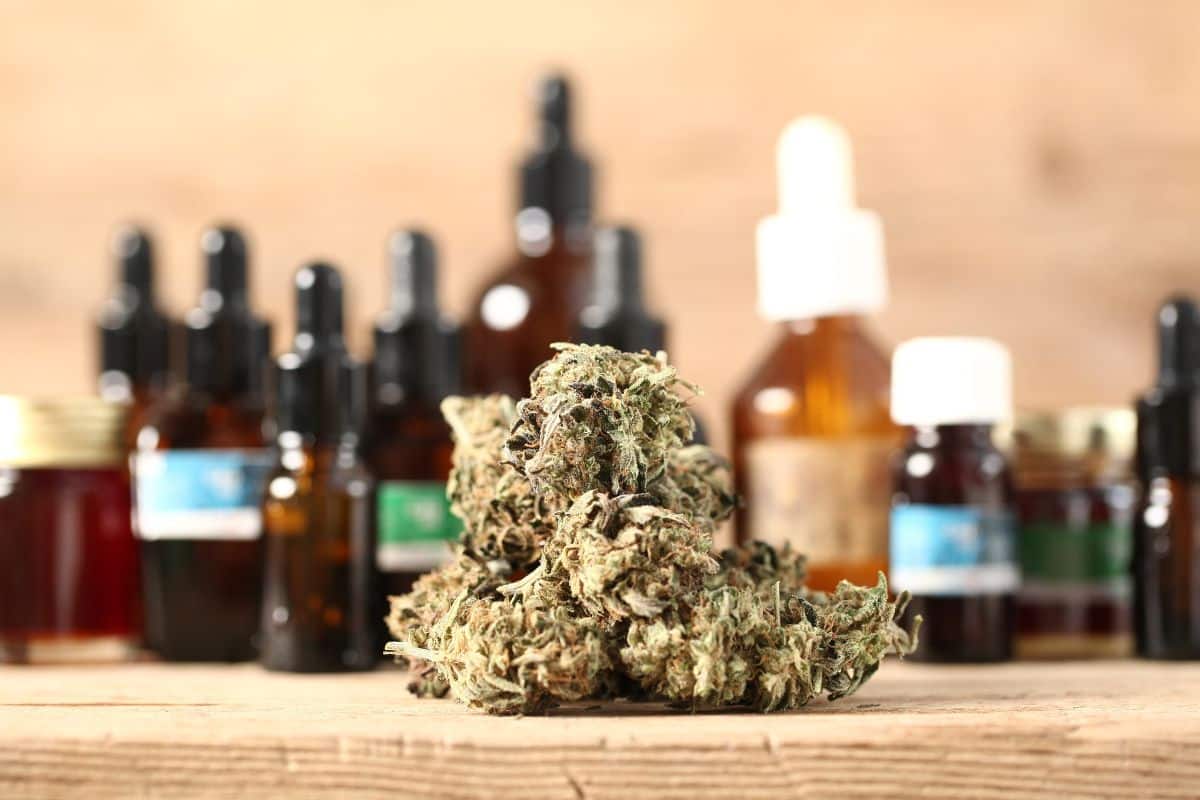
Delta 8 Alternatives
Delta 8 THC has become increasingly popular due to its similarity to Delta 9 THC, the primary psychoactive compound in cannabis. However, the legal status of Delta 8 in Idaho remains uncertain, prompting people to explore alternative cannabinoids. Some possible alternatives include Delta-10 THC and synthetic cannabinoids.
Delta-10 THC, like its cousin Delta 8, is a minor cannabinoid that can be derived from hemp or cannabis. While it doesn’t produce as potent psychoactive effects as Delta 9 THC, it may still offer some of the benefits associated with cannabinoids such as pain relief and relaxation. In states like Idaho, where the legality of Delta 8 is unclear, Delta-10 may be a more viable option for those seeking similar effects but with a lower likelihood of encountering legal issues.
Synthetic cannabinoids are a more recent development in the world of cannabis alternatives, created in labs to mimic the effects of the natural plant compounds. One such synthetic option is THC-O-Acetate, found in products like THC-O cartridges. This compound may produce effects that are up to three times more potent than traditional Delta 9 THC, making it an attractive option for some users in search of a more intense experience. However, synthetic cannabinoids may come with their own legal challenges, and their safety profile has not been as extensively studied as that of plant-derived cannabinoids.
For users who prefer a vaping experience, 2 Gram Vape Cartridges are available with various cannabinoid formulations, including Delta-10 THC, CBD, and more. These cartridges can provide a convenient and discreet way to enjoy the benefits of cannabinoids without the need to consume traditional cannabis products.
In conclusion, when considering alternatives to Delta 8 THC, it’s important to explore the various options available and weigh the pros and cons of each. Legal restrictions, personal preferences, and specific desired effects should be taken into account before settling on a suitable alternative.
Potential Future Changes in Legislation
Delta-8 THC is a cannabinoid found in the hemp plant, which has gained attention due to its similarities to the more well-known Delta-9 THC found in marijuana. The legal status of Delta-8 in Idaho is somewhat ambiguous, as it is derived from hemp, which is legal under the 2018 Farm Bill if containing less than 0.3% Delta-9 THC. However, Idaho has strict laws regarding cannabis and its derivatives, and any trace of THC in a product could potentially be considered illegal.
As society’s views on cannabis continue to evolve, there may be potential future changes in legislation for Delta-8 THC in Idaho. Decriminalization of cannabis could be one such change that might impact Delta-8’s legal status. Decriminalization generally refers to reducing or eliminating criminal penalties for possession and use of small amounts of cannabis, focusing more on treatment and prevention efforts instead. If Idaho were to move towards decriminalization, it could lead to a more lenient approach towards Delta-8 THC, allowing it to be sold and used in a regulated manner.
Regulation is another factor to consider in the potential future changes in Delta-8 THC legislation. Currently, due to the hemp loophole, there is a lack of clear regulation and guidelines for Delta-8 THC. States might consider creating specific regulations for the production, sale, and consumption of Delta-8 THC products, ensuring that they meet safety and quality standards. Implementing proper regulations could provide a legal framework for Delta-8 in Idaho, making it easier for businesses and consumers to navigate the market.
As the demand for Delta-8 THC products continues to grow, it is likely that more discussion will arise regarding its legal status in Idaho. This could lead to potential future changes in legislation, such as decriminalization and regulation, aiming to balance public interest and safety concerns. However, until any future changes are made, it is crucial for Idaho residents and businesses to stay informed about the current laws and regulations regarding Delta-8 THC.
Frequently Asked Questions
Is Delta-8 THC allowed in Idaho?
No, Delta-8 THC is not allowed in Idaho. The state has a restrictive legal environment for Delta-8 THC, making it illegal along with its more well-known counterpart, Delta–9-THC.
What is the legal status of Delta-8 in Idaho?
Delta-8 THC is considered illegal in Idaho. The state has banned both Delta-8 and Delta-9 THC, along with other psychoactive cannabis derivatives.
Has Idaho banned Delta-8 THC?
Yes, Idaho has banned Delta-8 THC. The state’s strict legal framework includes a ban on Delta-8 THC, as well as other cannabis derivatives that have psychoactive effects.
Are there legal alternatives to Delta-8 in Idaho?
Yes, there are legal alternatives to Delta-8 THC in Idaho. CBD (cannabidiol) is a non-psychoactive compound derived from cannabis that is federally legal under the 2018 Farm Bill, provided that it contains less than 0.3% Delta-9 THC. CBD products can be used as a legal alternative to Delta-8 in Idaho.
What are the penalties for possessing Delta-8 in Idaho?
Penalties for possessing Delta-8 THC in Idaho can vary, but generally include fines and potential jail time. The specific penalty depends on the amount possessed and whether the individual has prior drug-related offenses. It is important to consult local laws and regulations to understand the penalties associated with possessing Delta-8 THC in Idaho.
Do other states nearby Idaho allow Delta-8?
The laws surrounding Delta-8 THC vary from state to state. Some neighboring states, such as Utah, have similarly banned Delta-8 THC, while others, like Alabama and Mississippi, have legalized it. It is crucial to check the specific laws and regulations in each state before attempting to purchase or possess Delta-8 THC.

